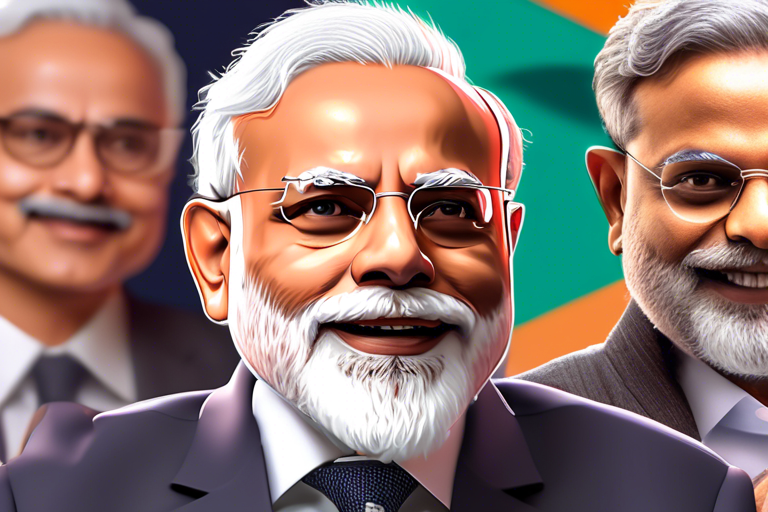Indian Prime Minister Modi Secures Key Partnerships to Form New Coalition
Indian Prime Minister Narendra Modi has successfully secured support from two crucial coalition partners, enabling him to establish a new government. This development comes in the wake of voter pushback and raises questions about the future of the coalition and its ability to uphold Modi’s economic policies, including promises of a manufacturing boom and infrastructure upgrades.
Challenges and Compromises Ahead for Modi’s Coalition
- Prime Minister Modi’s government relies on alliance partners for survival.
- Modi may face difficulties in finding willing allies due to limited support.
- Expect compromises on controversial social and economic issues.
Modi’s coalition partners are likely to oppose certain policies, such as introducing a uniform inheritance code to replace religious-based laws. On the economic front, reforms, including labor laws, may face resistance. Modi’s popularity may not be sufficient to sway public opinion or gain support from opposition parties.
Challenges in Implementing Reforms and Meeting Public Expectations
- Modi’s efforts to implement reforms may be hindered by opposition parties.
- Labor reforms and economic policies may require compromises to gain acceptance.
- Scrutiny on social issues like inheritance laws and population mapping could lead to contentious debates.
As Modi navigates the complexities of coalition politics, he will likely encounter hurdles in pursuing his agenda. The delicate balance between satisfying alliance partners and addressing public demands may create obstacles for Modi’s government.
Analysis of Modi’s Coalition and Future Prospects
- Coalition partners with socialist backgrounds may push for increased welfare measures.
- Government spending on welfare programs could strain the budget and impact economic policies.
- Job creation remains a critical challenge for Modi’s administration, despite efforts to attract manufacturing and investment.
Modi’s leadership style, including his Hindu nationalist rhetoric, may face scrutiny in a diverse political landscape. Communicating effectively with the public and balancing competing interests will be essential for Modi to govern successfully.
Assessing Modi’s Communication Strategy and Public Perception
- Modi’s communication skills and popularity remain assets for his government.
- Recovering from past controversies may require strategic engagement with the public.
- Potential disagreements within the coalition could impact Modi’s governance in the future.
Despite challenges and potential obstacles, Modi’s strong communication abilities and leadership experience could help him navigate the complexities of coalition politics. Maintaining public support and addressing diverse interests will be crucial for Modi to achieve his objectives.
Hot Take: Modi’s Path Forward in Coalition Governance
As Indian Prime Minister Narendra Modi embarks on forming a coalition government, the challenges of navigating diverse interests and implementing reforms loom large. With a focus on compromise and communication, Modi must address public demands, economic priorities, and social issues to sustain his government’s stability and effectiveness.





 By
By
 By
By
 By
By
 By
By
